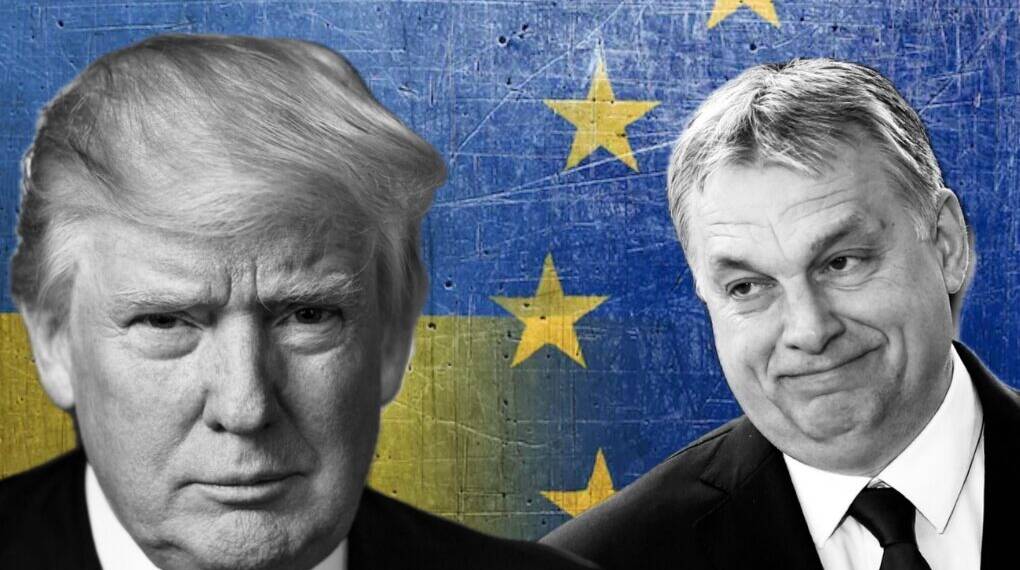Reports that U.S. President Donald Trump called Hungarian Prime Minister Viktor Orbán to seek his backing for Ukraine’s EU membership spotlight an unusual alignment in European and American politics. Orbán, one of the EU’s most outspoken skeptics regarding deeper integration and long one of Moscow’s friendliest voices within the bloc, has repeatedly stalled consensus decisions on Ukraine. Trump’s outreach raises questions about his motivations, his influence over European leaders, and the broader geopolitical stakes.
Neither the White House nor Orban’s office has commented on the call. Orban said on Tuesday on Facebook that Ukraine’s membership in the EU “does not provide any security guarantees,” therefore, “linking membership with security guarantees is unnecessary and dangerous.”
Trump’s call with Orban came the same day as the president’s discussion with Putin, which lasted about 40 minutes and took place without European leaders or Zelensky being in the room with the commander-in-chief.
Orbán as a Gatekeeper
Within the EU, enlargement decisions require unanimity. This grants Orbán extraordinary leverage. Hungary’s strategic positioning—on NATO’s eastern flank, historically tied to both East and West—amplifies Orbán’s role as a deciding vote. For years, he has framed Ukraine’s aspirations through a nationalist lens, often citing minority rights, economic costs, or the risks of inflaming tensions with Russia.
By calling Orbán directly, Trump appears to be acknowledging both Hungary’s veto power and Orbán’s reputation as a disruptor within Europe. Orbán is not just a head of government; he has positioned himself as a symbolic counterweight to Brussels bureaucrats and liberal democratic norms.
Trump’s Calculation
Trump’s decision to lean on Orbán is analytically complex. Trump has often been accused of sympathizing with Moscow or downplaying the Kremlin’s aggression. For him to press Orbán—an ally who has cultivated warm ties with Vladimir Putin—for cooperation on Ukraine’s EU membership signals several possible readings:
Strategic Hedging: Trump may be recalibrating his rhetoric on Russia, sensing that blocking Ukraine’s aspirations would weaken Western unity and prolong the war.
Image-building: Securing Orbán’s support could allow Trump to cast himself as a dealmaker capable of moving stubborn actors, reinforcing his longstanding political brand.
Transatlantic Leverage: By intervening in a strictly European matter, he reminds both allies and adversaries that American politics cannot be ignored in shaping Europe’s future.
EU Politics Under Pressure
For Brussels, Orbán’s grip on enlargement highlights how fragile the EU’s consensus model can be in moments of crisis. Ukraine’s push to join the bloc has already forced Europe to rethink its pace of integration and its readiness for long-term security commitments. Orbán’s resistance has become both a substantive test of EU unity and a symbolic expression of democratic dissonance within the Union.
Trump’s involvement, while unconventional, underscores a broader reality: U.S. politics continues to seep into European decision-making. Whether welcomed or resented, America’s leaders—past and present—carry weight when critical strategic decisions are at stake.
Risks of the Outreach
The overture also carries risks. Orbán may spin Trump’s call as proof that even the most powerful figures recognize his importance, feeding his domestic narrative of sovereignty and resistance to Brussels. At the same time, Trump’s critics could argue that he lends undue legitimacy to an EU leader accused of democratic backsliding.
More glaringly, encouraging a breakthrough on Ukraine’s EU membership without addressing structural reforms—corruption, governance, economic readiness—may set expectations that Brussels is not prepared to meet. This tension between geopolitics and institutional rigor lies at the heart of EU enlargement debates.
Trump’s attempt to sway Orbán on Ukraine’s EU accession illustrates the intersection of great-power politics, personal diplomacy, and institutional fragility. Orbán stands as both obstacle and gatekeeper, while Trump replays his familiar role as negotiator inserting himself into a high-stakes impasse.
Whether this move will shift Hungary’s stance remains unclear. What is clear, however, is that Ukraine’s pathway to Europe is not just a battlefield issue but also a political chessboard where leaders like Orbán and Trump play outsized roles.








